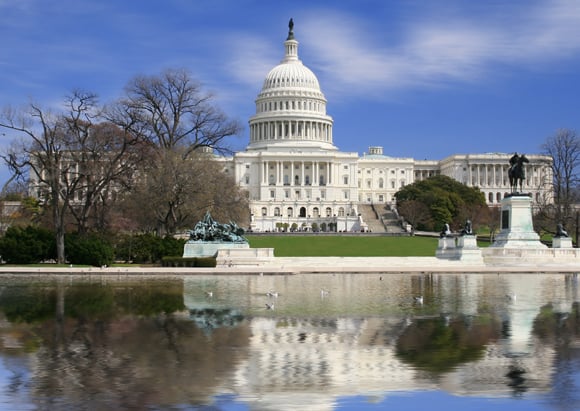Partisanship in Washington has spiked over the last several years, with Democrats and Republicans seemingly able to find a reason to disagree on just about anything.
The latest topic to get caught in the crossfire? Investor protection.
The House recently approved a bill, 390-23, that would ease Securities and Exchange registration requirements for emerging companies. It also would enable startup companies to raise capital in small increments over the Internet and through social media in a process known as crowd funding.
Proponents of the legislation say that it will open the financing spigots for entrepreneurs and catalyze job creation. Skeptics say that it undermines SEC oversight and could lead to fraud.
Both Republicans and Democrats want to portray themselves as champions of a measure that purports to address the number issue on voters' minds — jobs. But as the bill heads for a Senate vote this week, three Democrats want to slow the legislative process down to a more Senate-like pace.
Sens. Jack Reed, D-R.I., Carl Levin, D-Mich., and Mary Landrieu, D-La., are going to offer an
amendment on Tuesday that they say would add what they call crucial investor protections to the bill. Those protections include crowd-funding restrictions.
The senators are standing against several strong political forces. First, Senate Majority Leader Harry Reid, D-Nev., agreed to have the House bill considered in the Senate rather than a Democratic substitute. That gave the House bill a big head start in a finicky Democratic-led Senate that usually seeks to do its own thing rather than follow the lead of the Republican-majority House.
In addition, the House bill arrived in the Senate with strong bipartisan support and the backing of the Obama administration. The rare alignment of the political universe prompted Republicans to assert that the Democratic dissidents are playing politics.
“They're trying to figure out ways to make this overwhelmingly bipartisan bill controversial,” Senate Minority Leader Mitch McConnell, R-Ky., said in a March 15 floor statement. “They want to pick a fight rather than get this bill to the president's desk.”
House Financial Services Committee Chairman Spencer Bachus, R-Ala., was more pointed today. He accused the Democrats of trying to kill the bill to underscore their assertion that this is a do-nothing Congress. “The concerns about investor protection that are suddenly now being raised are nothing but a fig leaf that Senate Democrats are hiding behind to continue their campaign theme,” Mr. Bachus said in a statement.
The senators deny that they're trying to scuttle the bill. They said that they are trying to add investor safeguards called for by SEC Chairman Mary Schapiro. “We're trying to make this bill work,” Mr. Levin said. “We're trying to do it in a way that protects investors.”
The Reed-Levin-Landrieu amendment, for instance, would require that crowd-funding websites register with the SEC. In a floor speech on March 15, Mr. Reed asserted that the House bill is too lax in this area.
“It tries to create a way that crowd-funding can be used to raise money for small enterprises, but it does this with very few protections for investors and would allow unregulated websites to peddle stock without oversight,” Mr. Reed said.
The Senate Democrats face long odds in garnering enough support to amend the House capital-formation bill. They would have to line up 60 senators to overcome a filibuster.
Even then, their amendment is not enough to satisfy the concerns of the North American Securities Administrators Association. They oppose the House bill and the Reed-Levin-Landrieu amendment for pre-empting state registration for crowd-funding offerings.
This is a make-or-break week for the state regulators when it comes to crowd-funding.
“We haven't given up hope,” said NASAA President Jack Herstein, assistant director of the Nebraska Department of Banking and Finance. “The door might slightly be open to change some minds.”







